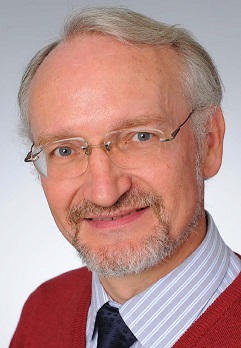-

Research interests
- Channelopathies (Ionenkanal-Krankheiten) are caused by defects either in an ion conducting or an associated auxiliary subunit of the channel, or by interacting partners. We are focused on structure and function of a voltage-dependent Ca2+-channel containing the Cav2.3 E-type subunit, the formerly called “pharmacoresistant” (R-type) calcium channel, which was cloned in 1994 as the human Cav2.3, independently in two different groups (Williams M.E. et al., Harpold M.M. & Ellis S.B., 1994 and Schneider T. et al., Stefani E. & Birnbaumer L. 1994). Its gene inactivation in mice has given us access to its physiological function which is related to the cardiac, the endocrine and the neuronal system.
- In 2018, mutations were detected in the human gene of Cav2.3 (Helbig et al., 2018 Am. J. Hum. Genet.). In a group of 30 individuals with developmental and epileptic encephalopathies, structural and functional variations in this widely expressed voltage-gated Ca2+ channel were found, which may lead to an overexcitaions in regions, related to infancy development (see comments by G. L. Carvill, 2019).
- Gene inactivation of Cav2.3 in mice (loss of function) reduces experimentally induced epilepsy (Weiergräber et al., 2007; Dibué-Adjei et al., 2017). However, the gain of function mutations of Cav2.3 in early childhood cause severe neurodevelopmental disorders, characterized by intractable seizures, abundant epileptiform activity on EEG, and developmental impairment or regression (Helbig et al., 2018/2019).
Contact:
Institut für Neurophysiologie
Medizinische Fakultät
Universitätsklinikum Köln AöR
Robert-Koch Str. 39 D-50931 Koeln
Phone: +49-221-478-6946
Fax: +49-221-478-6965
Toni.schneideruni-koeln.de